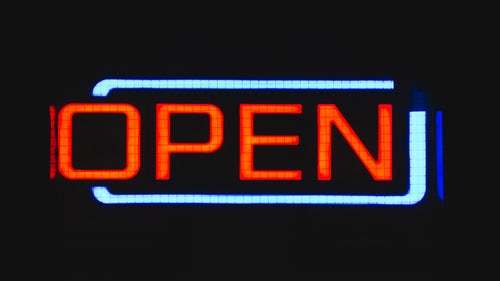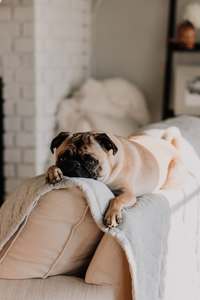- You are here:
- Home »
- Blog »
- Natural Solutions »
- Generate Endless Energy- Naturally (Part Three: Energy Management- Continued)
Generate Endless Energy- Naturally (Part Three: Energy Management- Continued)

What Are Open Loops?
As already discussed, stress is an energy drainer. It is responsible for a lot of our low energy states, using up the available supply quickly sometimes. So, when we can eliminate sources of stress quickly, it is best to do so asap.
Open loops are sources of stress we can eliminate. Open loops are little jobs that you need to get done but you keep putting off. Things like paying bills, finishing that mandatory course at work, thank you’s to relatives or friends for gifts etc.
The longer you leave these loops open, the more they will work on you. Kind of like those little tiger mosquitoes in the back yard which bite you when you water the garden. After a while, you end up with a bunch of little bites that leave you scratching. irritated, unable to concentrate because you’re interrupting yourself to scratch.
The thing is, the longer you leave these loops open, the more they’re going to bite you. Soon you will find yourself stressing out about all these little tasks and draining your energy.
What to Do?
Close those open loops as quickly as possible. You get a bill. Go online and schedule the payment. Mark the bill. Put it where you keep this stuff, if you do and done! No more bite from that one.
Call or write the gifter right away. Put a stamp on it. Bam! Another mosquito swatted.
You know what your “open loops” are. Don’t let them drain you. Close those loops right away and get on with more important issues to move yourself forward in your life. Less stress which means more energy for you.
Ebbs and Flows
Just like river or tide, we all have ebbs and flows of our energy. This is partly due to our body’s natural rhythms called our circadian rhythm.
In the morning, light (especially sunlight exposure) signals your hypothalamus in the brain to “wake up”. This triggers your body to produce optimal levels of daytime hormones and  neurotransmitters (brain and nerve chemicals) that help to regulate your circadian rhythm.
neurotransmitters (brain and nerve chemicals) that help to regulate your circadian rhythm.
One of the neurotransmitters is serotonin which is commonly understood to bring about feelings of happiness and well-being. Many anti-depressant drugs are centered on the function of serotonin because of its impact on mood. However, serotonin also helps regulate our body’s internal clock.
You can influence your serotonin level with diet, activity level and sunlight. For example, you can deliver 100 times the brightness of indoor light by just getting outside on a sunny day. Even a cloudy day delivers 10 times as much.
Just getting outside for a 15-minute walk can help generate more serotonin which can ease stress producing more energy but also help set you up for better sleep.
Adenosine- Another Neurotransmitter
Adenosine is a natural chemical that is involved in the energy cycle of our cells and helps to create ATP which is the primary energy carrying molecule in all living organisms including us.
However, during the day adenosine accumulates in the brain making you feel tired like that 4:00 p.m. lull many of us get. By the end of the day as it get darker, you should be ready to sleep.
During sleep, adenosine is metabolized (processed and made ready to be used) and when you awaken you should feel refreshed.
So, even if your energy is higher, there will be points during the day when you will feel lower amounts of energy. The trick is to learn how to use your ebbs and flows rather than fighting them.
A lot of people will find that when they come home from work, the first thing they do is to sit down on the couch and turn on the TV.
Then, if you eat while watching TV, you are telling your body and brain that you’re finished for the day and you can unwind.
After you have eaten, your body will be using up its energy to digest. With the energy emission from the TV actually moving us from an active beta state into an alpha state putting us into a state of relaxed awareness. Since the room has typically been darkened as well which further induces relaxant hormones in the body, you will likely find that you struggle to do anything useful from this point on. Hence, the term couch potato.
How to Better Handle the Ebbs and Flows
As previously discussed, you will have ebbs and flows during the day. You can figure out where your ebbs and flows are by simply listening to your body. When you’re tired let your body rest if you can. If possible, try and coincide breaks or lower level activities with these natural lulls in your energy.
There is a saying that goes: Walk or sit; don’t wobble!
This means there is no point being ‘half productive’. You should either be ‘on’ or ‘off’.
Let’s say that you have a big project at work or maybe you are planning a wedding. The temptation would be to spend every last-minute wedding planning, to the point where your evenings would be spent absent-mindedly browsing through venues or flowers.
Or if a work planning project, you would find yourself drifting into peripheral topics and not focusing on the project at hand.
A better way to handle these bigger project or planning sessions is to periodically give yourself some time off. This way you can recharge a bit with some brief exercise or a quick outdoor trip and regain the energy lost during the working periods.
You can even take a day or evening off to recharge and let things settle and you’ll find yourself more productive when you get back to the project.
The point is you walk when your energy is high and sit when it’s low. Don’t force yourself to wobble when your body and brain is telling you, No!
Another way to handle this is to do the most intensive work earlier in the day when you are more fully charged. Don’t wait until you start to ebb at 4pm.
Remember, not everyone has the same energy cycle. Take some time out to map out your energy ebbs and flows. Reflect throughout the day on how your energy is holding up. Overtime, you should be able to pretty accurately predict where your energy will be at any given time.
There are also larger ebb and flow periods when you find yourself unable to be productive for longer stretches. This can be a monthly or quarterly occurrence. Athletes can relate to this. In baseball, for example, hitters nearly always fall into a slump throughout the season.
For now however, the main thing to remember is to: listen to your body and give it time to rest when it needs it.
The After-Work Dinner Time Period
 Getting back to that important after work period approaching dinner time. One solution to the TV issue is to eliminate this behavior entirely. Eat at the table not the TV. Eat earlier while it’s still light if possible. When dinner is done, get up right away and clean up. This helps stall the point where your energy levels suddenly dip towards sleep.
Getting back to that important after work period approaching dinner time. One solution to the TV issue is to eliminate this behavior entirely. Eat at the table not the TV. Eat earlier while it’s still light if possible. When dinner is done, get up right away and clean up. This helps stall the point where your energy levels suddenly dip towards sleep.
Another option is to get everything productive done before dinner. Simply acknowledge the fact that you won’t get anything done after this point. At least that will lower any stress feelings about your “time off”.
You can also eat a little later (after a quick healthy, non-sugar snack to stave off hunger pangs and boost your energy) Then, get some household chores or another productive activity done before you sit down to dinner.
In the next post we’ll look at the sleep issue which is very important. Probably more than you think.
Start at Part One. Move on to Part Four- Better Sleep
Related Posts
Should You Take Drugs to Cure COVID-19?
Free Survival Nutrition Course – 8 Hours Plus PDF
Is Holistic Oral Care a Forgotten Part of Your Natural Health Treatment Plan?
What’s For Dessert? Superfood Fudge
8 Common Herbs With Amazing Health Benefits
Four, No-Cost, Natural Life Hacks for Creating a Healthier Emotional State
Wall Street Journal Investigation Finds Dumpster Trash Food and Supplements Being Sold as New
Tackling Obesity Begins with Awareness and Ends with Action

